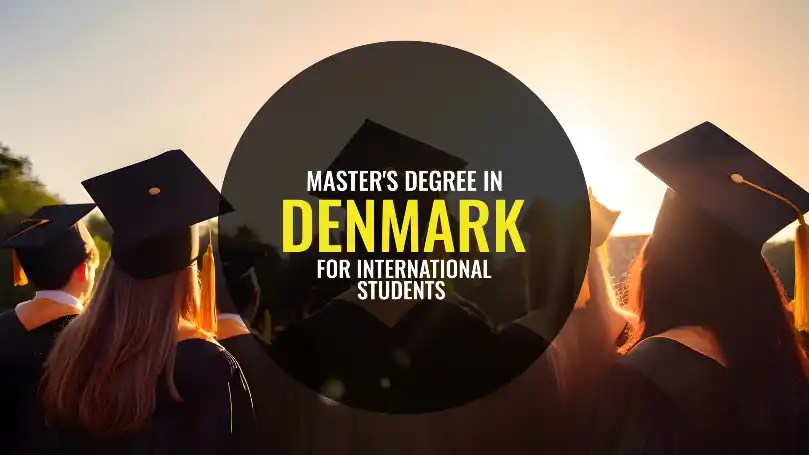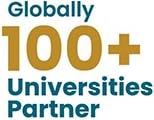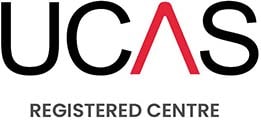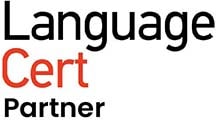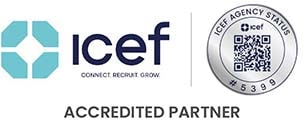Embarking on a journey to pursue a Master’s Degree in Denmark as an international student is a decision laden with potential. Known for its high-quality education system, diverse culture, and picturesque landscapes, Denmark has become an increasingly popular destination for those seeking academic excellence. This guide aims to provide you with a comprehensive overview of pursuing a Master’s Degree in Denmark, addressing crucial aspects such as admission requirements, popular courses, living expenses, and much more.
What is a Master’s degree program in Denmark?
A Master’s degree program in Denmark is an advanced, research-based course that takes two years. It consists of compulsory courses, elective courses, and thematic courses. You can often choose between a general track or a specialization within your program.
This program includes a final dissertation (normally 30-60 ECTS credits) or, in certain subjects, a more practical project.
Why pursue a master’s degree in Denmark?
Pursuing a Master’s Degree in Denmark offers a myriad of benefits that make it an attractive choice for international students. Here are compelling reasons to consider Denmark for your postgraduate studies:
- Educational Excellence: Denmark boasts a strong and reputable education system, with several universities consistently ranked among the top in global university rankings. Danish universities emphasize research and innovation, providing students opportunities to engage in cutting-edge projects and contribute to advancements in their respective fields.
- English-Taught Programs: Many Master’s degrees in Denmark are offered in English, making it accessible to international students who may not be fluent in Danish. Studying in an English-speaking environment fosters a diverse and inclusive atmosphere, allowing students worldwide to collaborate and exchange ideas.
- Cultural Diversity and Inclusivity: Denmark is known for its friendly and inclusive culture, making it easier for international students to integrate into the local community. The country’s commitment to diversity ensures that students experience a global learning environment, enhancing cross-cultural understanding and collaboration.
Popular Master’s degree in Denmark
Denmark offers a wide range of popular Master’s degree programs across various disciplines, catering to international students’ diverse interests and career aspirations. Here are some of the popular Master’s degrees in Denmark:
| Master’s degree in Denmark | Duration | Institution |
| MBA in General Management | 1 year | International Business Academy (IBA) |
| MSc in International Business | 1 year | International Business Academy (IBA) |
| Cyber Security and Privacy, Master | 1 year | Aalborg University (AAU) |
| Advanced Economics and Finance (MSc) | 2 years | Copenhagen Business School (CBS) |
| Architecture, MSc in Engineering | 2 years | Aalborg University (AAU) |
| Bioengineering, MSc in Engineering | 2 years | Aalborg University (AAU) |
| Biotechnology, MSc in Engineering | 2 years | Aalborg University (AAU) |
| Business Administration and Philosophy (MSc) | 2 years | Copenhagen Business School (CBS) |
| Chemical Engineering and Biotechnology (MSc) | 2 years | University of Southern Denmark (SDU) |
| MSc in Business and Organisational Psychology | 1 year | International Business Academy (IBA) |
| Master in Sustainable Tourism and Hospitality Management | 1 year | Copenhagen Business School (CBS) |
| Full-time MBA | 1 year | Copenhagen Business School (CBS) |
| Accounting and Finance | 2 years | University of Southern Denmark (SDU) |
| Architecture | 2 years | Aarhus School of Architecture |
Cost to study a Master’s degree in Denmark
Higher education is free in Denmark for all Bachelor’s and Master’s students coming from the EU/EEA area and Switzerland, as well as for students participating in an exchange program.
For non-EU/EEA citizens, tuition fees in Denmark range between 6,000 – 16,000 EUR/academic year. Some specialized programs might cost more, that’s why we recommend that you check the university page to see what tuition applies to you.
Admission requirements to study Master’s degree in Denmark
Admission requirements for a Master’s degree in Denmark can vary slightly between universities and specific programs, but there are common criteria that most institutions adhere to. It’s crucial to check the specific requirements and the university program you are interested in. Here is a general overview of the typical admission requirements for a Master’s degree in Denmark:
Educational Background
You must hold a relevant Bachelor’s degree or equivalent from a recognized institution. The degree should be in a field closely related to the Master’s program you are applying for.
Academic Transcripts
Provide official transcripts of your academic records, detailing the courses you have completed and the grades obtained during your Bachelor’s degree.
Language Proficiency
Since many Master’s programs in Denmark are taught in English, you will need to demonstrate proficiency in the English language. Commonly accepted English proficiency tests include the TOEFL, IELTS, or Cambridge Certificate.
Entrance Exams
Program-Specific Entrance Exams: Some Master’s programs, especially in technical or scientific fields, may require applicants to take specific entrance exams. Check the program’s admission requirements for details.
Letters of Recommendation
Typically, you will need to submit two or three letters of recommendation from professors or professionals who can speak to your academic capabilities and potential for success in the chosen program.
Statement of Purpose
Write a compelling letter outlining your motivation for pursuing the Master’s degree in Denmark, your academic and professional goals, and how the program aligns with your aspirations.
Resume/Curriculum Vitae (CV)
Some programs may require or prefer applicants to have relevant work experience in addition to academic qualifications. Include a detailed resume or CV outlining your professional background.
Portfolio (if applicable)
If you are applying for a Master’s program in arts, design, or a related field, you may be required to submit a portfolio showcasing your previous work and projects.
Interview (if applicable)
In some cases, you may be asked to participate in an interview, either in person or via video conferencing, to discuss your qualifications and motivations further.
Proof of Funding
International students often need to provide proof of financial ability to cover tuition fees and living expenses. This may include bank statements or scholarship award letters.
Visa Requirements
Ensure that your passport is valid and that you have the necessary visa to study in Denmark. Check with the Danish immigration authorities for specific requirements.
Final words
Embarking on a Master’s Degree journey in Denmark is not just about academic pursuits; it’s an opportunity for personal and cultural growth. This guide is designed to serve as your compass, navigating the complexities of the application process, financial planning, and life as an international student in Denmark. If you want to pursue a Master’s degree in Denmark you can always contact AIMS Education.
FAQ
What is the most popular Master’s degree in Denmark?
Ans: Here is a list of popular Master’s degrees in Denmark for international students-
MBA in General Management
MSc in International Business
Cyber Security and Privacy, Master
Advanced Economics and Finance (MSc)
Architecture, MSc in Engineering
Bioengineering, MSc in Engineering
Biotechnology, MSc in Engineering
Business Administration and Philosophy (MSc)
Chemical Engineering and Biotechnology (MSc)
MSc in Business and Organisational Psychology
Which universities in Denmark offer Master’s programs for international students?
Ans: Many universities offer Master’s degrees in Denmark for international students. Such as-
Aalborg University (AAU)
Copenhagen Business School (CBS)
University of Southern Denmark (SDU)
International Business Academy (IBA)
Aarhus School of Architecture
What is the average duration of a Master’s degree in Denmark?
Ans: Generally a Master’s degree in Denmark takes 1-2 years for the course to complete. If the internship opportunity is added it can take more time.
Does a Master’s degree in Denmark offer scholarships for international students?
Ans: Yes, almost every Master’s degree in Denmark offers scholarships for international students. It helps to reduce their education costs.
Can international students work part-time during their studies?
Ans: Yes, international students can work part-time during their studies. The duration is 20 hours per week.

